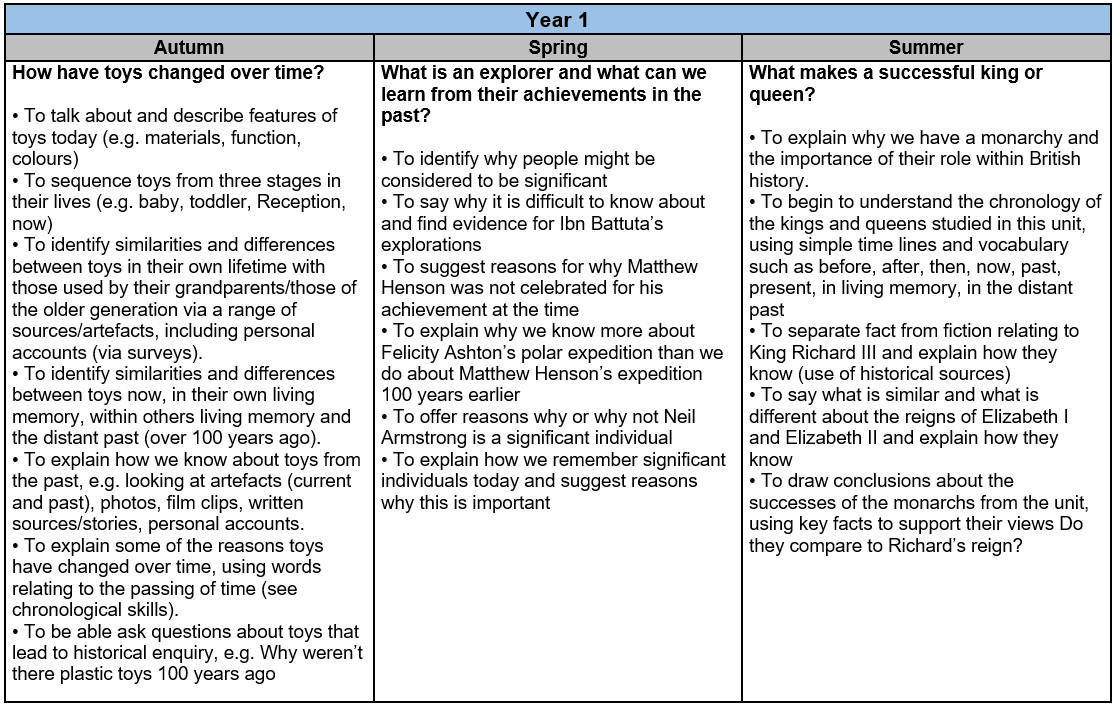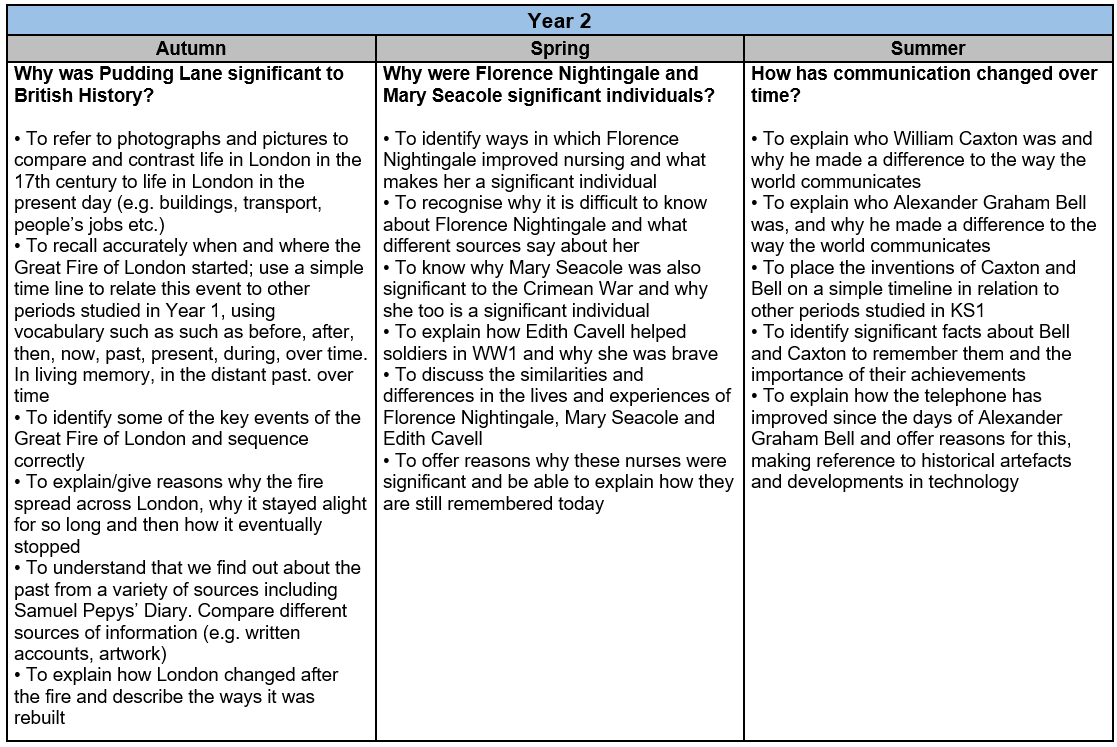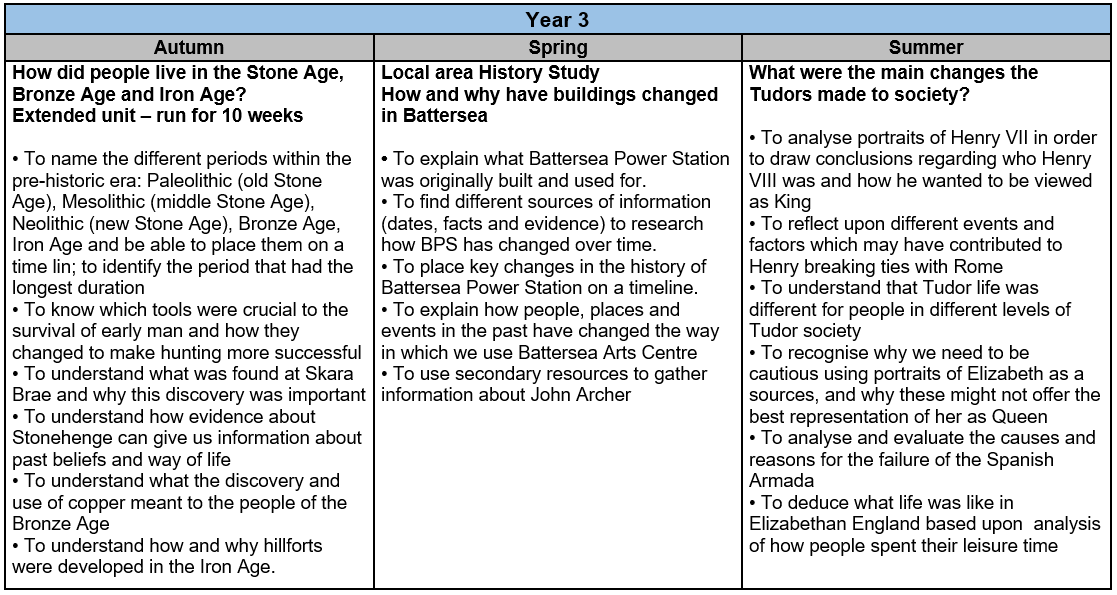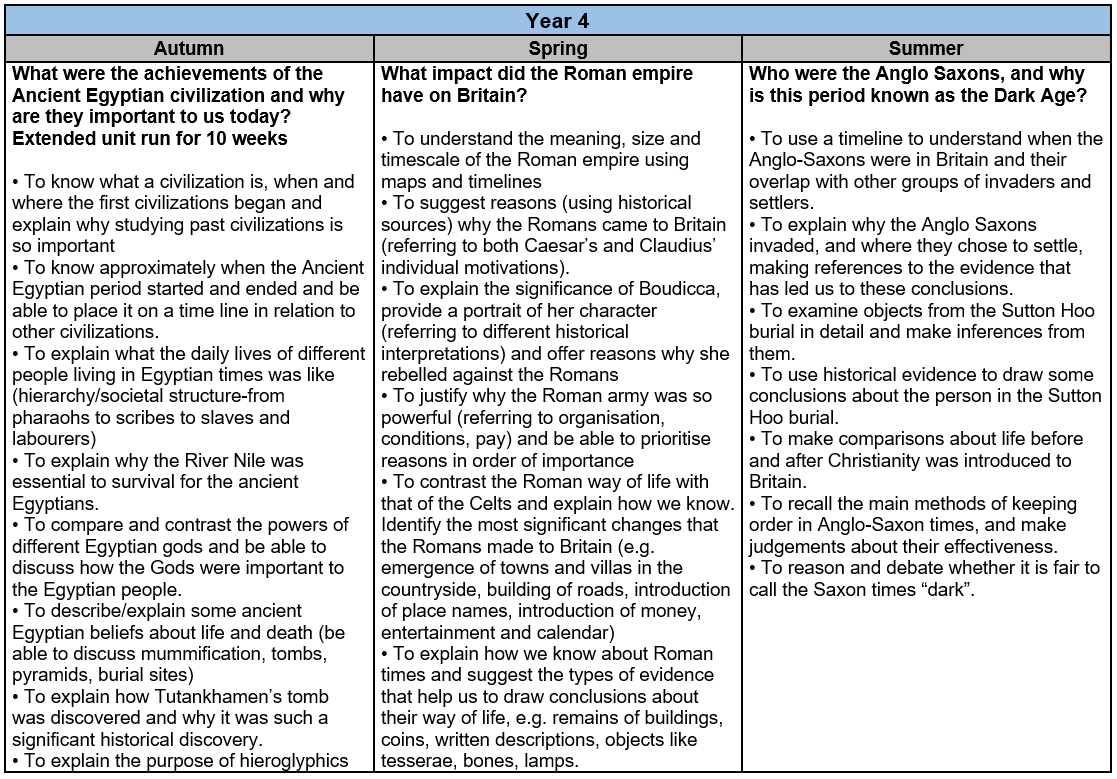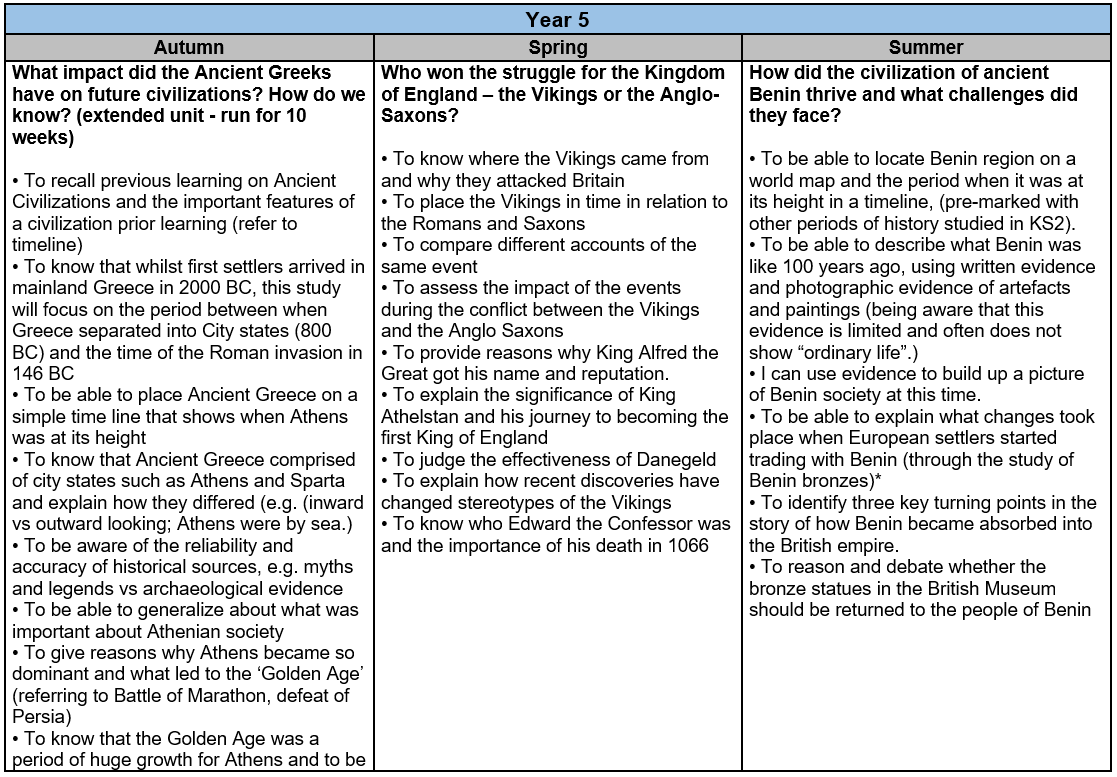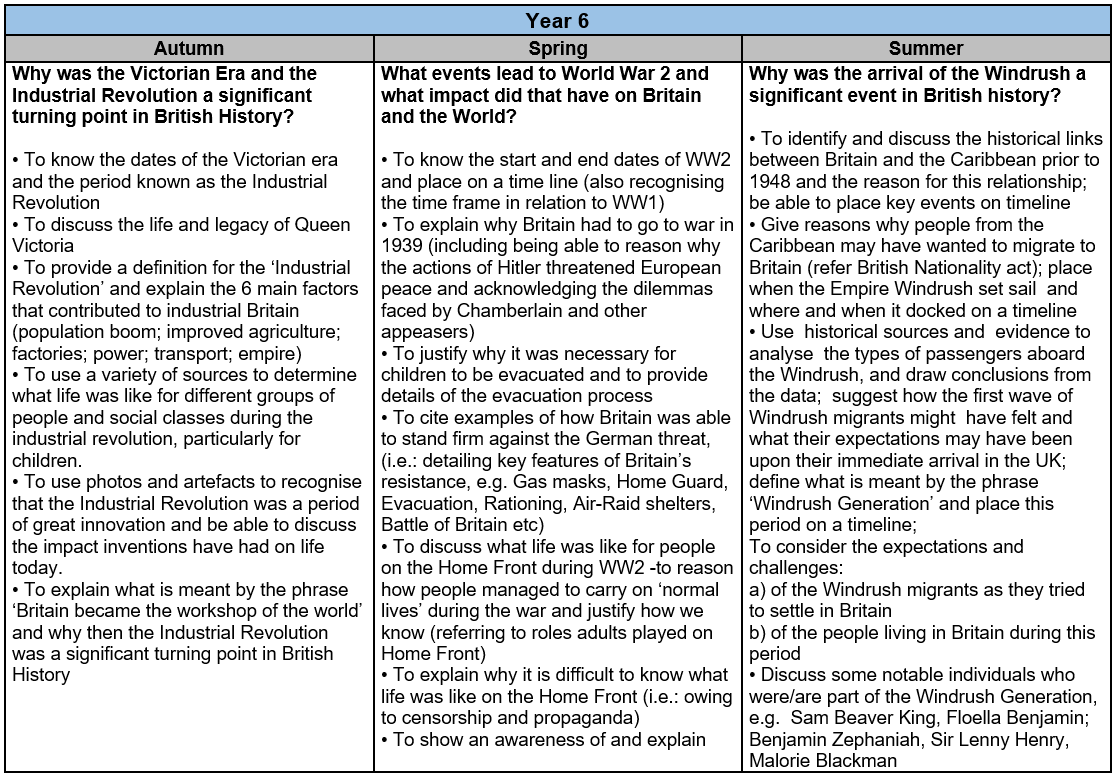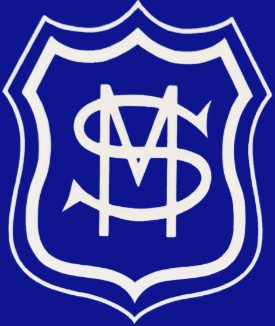History
Our Approach to the Teaching and Learning of History at St Mary’s School
With both schools in the heart of one of the most historically important cities in the world, we only have to walk a few steps from the school site in order to learn about significant people, places and events from the past. A few steps further, due to the ongoing rejuvenation of our local area, we can see how the impact of the past has shaped decisions about our future.
Our curriculum clearly recognises the importance of teaching history as a discrete subject which we all enrich through the study of well chosen fiction and non-fiction books and through other subjects such as music and art. Our classes make the most of the wealth of museums and experiences that London has to offer, and use our local area as a resource to make the learning relevant.
Through weekly history lessons, our children will develop a balance of knowledge and skills. Units of work have been chosen that will enable the children to meet the National Curriculum requirements and that will develop their sense of local, national and world history. They are sequenced in an age appropriate way that allows for progression of skills. Our milestones are delivered through high quality teaching that is differentiated and personalised in order to meet the individual needs of our children, including those with SEND.
As the children progress through the key stages, they will develop a strong understanding of chronology from stone age man to the moon landing. They will use their own life experiences to discuss significant people and events, before moving on to units set within and beyond living memory. By the end of their time with us, and having studied more challenging units such as, “Why was the arrival of the Windrush a significant event in British history?” and “What events lead to World War 2 and what impact did that have on Britain and the World?” we aim that our history curriculum will serve to give our children a strong sense of their own identity and place within our diverse community and changing times.
Teachers monitor learning in the lesson to quickly pick up on misconceptions and to scaffold tasks in order to support individuals. Whole class and targeted feedback is given in the lesson where possible and after, through written feedback if necessary. Children will have the opportunity to regularly edit and improve their work. Each new lesson starts with a recap of prior learning and an opportunity for the children to assess their progress against our milestones. We use knowledge organisers and working walls to help remind the children about their learning in each unit. Teachers use evidence in books, oral contributions and observations of children working to make judgements about their attainment in this subject.
EYFS Educational Programme – Understanding the World
Understanding the world involves guiding children to make sense of their physical world and their community. The frequency and range of children’s personal experiences increases their knowledge and sense of the world around them – from visiting parks, libraries and museums to meeting important members of society such as police officers, nurses and firefighters. In addition, listening to a broad selection of stories, non-fiction, rhymes and poems will foster their understanding of our culturally, socially, technologically and ecologically diverse world. As well as building important knowledge, this extends their familiarity with words that support understanding across domains. Enriching and widening children’s vocabulary will support later reading comprehension.
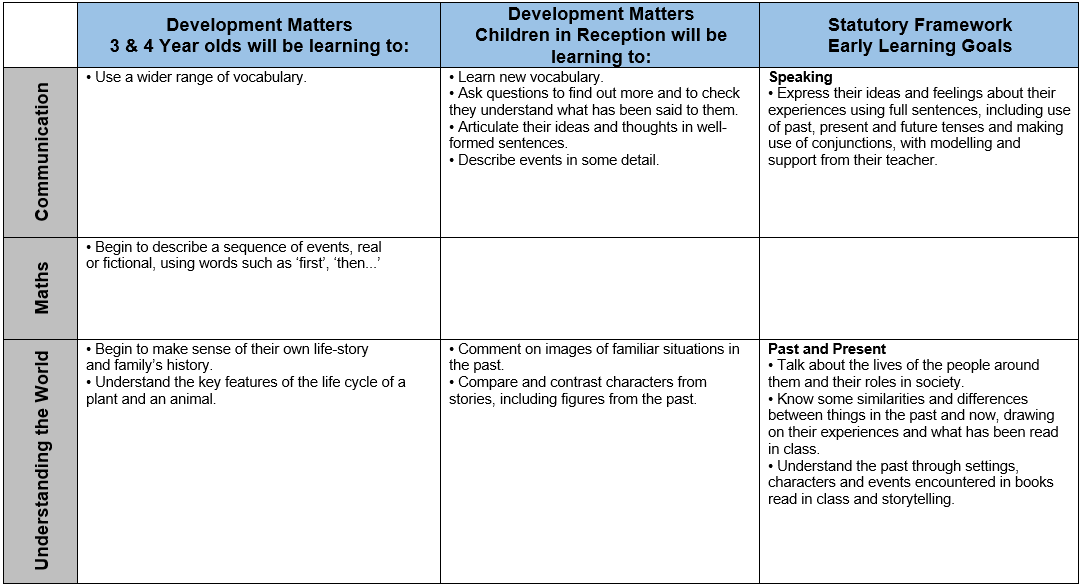
History Curriculum Road Map Year 1 – Year 6
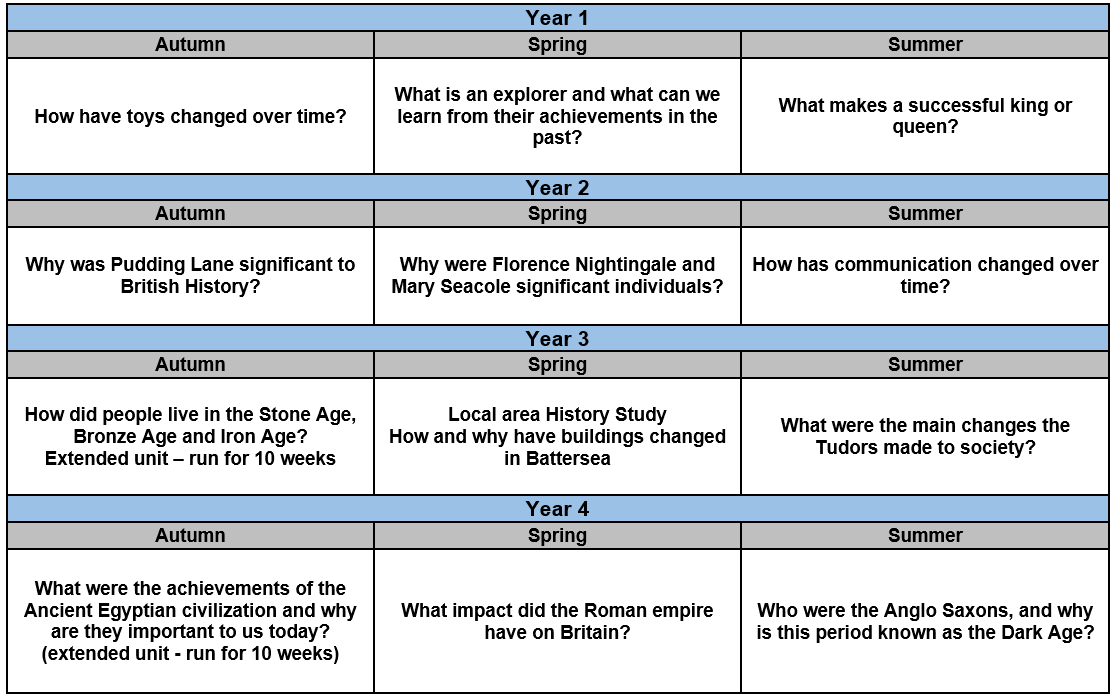
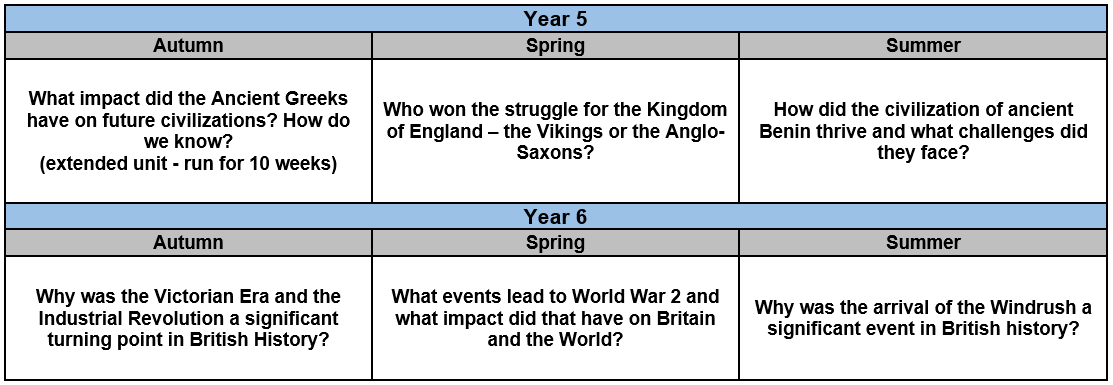
History Curriculum Milestones Year 1 – Year 6
